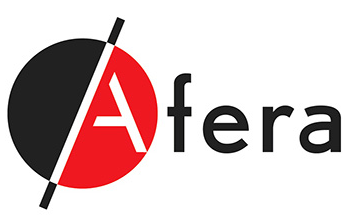
TACK: Tape and adhesives calculation kit for product carbon footprint (PCF)
Launching an effective solution to help Members meet upcoming E.U. regulations

Adhesives and tapes play a crucial role in sustainability by enhancing energy efficiency, durability, and recyclability, aligning with the European Green Deal’s goals while aiming for CO₂ neutrality by 2050. To meet upcoming regulations, manufacturers require a standardized, recognized framework for measuring sustainability, ensuring transparency and credibility in environmental claims across the adhesive tape value chain.
The Product Carbon Footprint (PCF), one of the most established methods for determining the climate impact of a product, sums up the total greenhouse gas (GHG) emissions generated by a product over the various stages of its life cycle.
PCF is also becoming increasingly important within our industry for estimating the environmental impact of all types of adhesive tapes—in particular, a “cradle-to-grave” (entire life cycle) or “cradle-to-gate” (defined life cycle phase) assessment of PCF based on the Life Cycle Assessment (LCA) approach, including factors such as the raw materials, manufacturing, distribution and end-of-life stages for B2B reporting.
An affordable solution for all member companies.

Afera and German Adhesives Association IVK teamed up with Sphera, a recognized integrated sustainability company, to develop a web-based, sector-wide tool for PCF calculation of both adhesives and adhesive tapes using an aligned, straightforward, affordable manner.
PCFs will be calculated according to ISO standard 14067:2018: Greenhouse Gases – Carbon Footprint of Products through an expansion of the Together for Sustainability (TfS) PCF Guideline, and ISO standard 14040:2006 Environmental Management - Life Cycle Assessment.
A validated calculation model has been agreed upon by and for the tapes and adhesives sectors.
TACK (Tape and Adhesives Calculation Kit), designed for B2B utilisation by adhesive tape manufacturers, converters and raw materials suppliers, is now ready for use! Companies who are Afera member can obtain a license to access the collaboratively developed tool.
TACK is based on a validated calculation model, which has been agreed upon by and for the tapes and adhesives sectors. PCFs will be calculated according to ISO standard 14067:2018: Greenhouse Gases – Carbon Footprint of Products through an expansion of the Together for Sustainability (TfS) PCF Guideline, and ISO standard 14040:2006 Environmental Management - Life Cycle Assessment.
Why the PCF calculation tool is critically important: Don’t miss out!

It will be required in the (near) future! Currently PCF information is already required under the Battery Regulation. Under the ESPR (Ecodesign for Sustainable Products Regulation), which is still under negotiation, PCF measurement will most likely be extended to other sectors, in some cases to be included in Digital Product Passports (DPPs). Nevertheless, customers are increasingly asking for PCF data.
TACK will become the aligned approach. It is compatible with existing Industry data and calculation methods for raw materials (e.g. the TfS methodology for chemicals) and broadly applicable to all kinds of adhesive tapes, surface protection films and analogous products. The methodology includes the impact of tape manufacturing process operations and defined system boundaries (e.g., waste, logistics, energy, etc.).
It will ensure compliance with E.U. regulations. DEKRA will validate the methodology, documentation and training requirements. This allows businesses to meet future legal requirements as well as the demands of the supply chain. This is good for customers and authorities and ultimately makes the tape industry more credible and resilient. Afera has ensured that the collaborative development of the PCF calculation tool complies with European Union competition law.

TACK will help Afera tape manufacturer Members navigate the complexities of Scope 3 reporting and become more sustainable. The established methodology for calculation can be used to monitor a company’s own progress towards reducing environmental impact. With the availability of consistent PCF data across the supply chain, companies will be able to track their Scope 3 emissions, aiding their efforts to reduce GHG emissions.
The calculation method can be used internally in R&D processes to develop novel products with reduced environmental impact. TACK does not require a high level of expertise for use. It will be accessible to non-LCA experts to produce PCF values confidently.
It will be updated and expanded. Afera will have the possibility to develop a common methodology to validate data from upstream suppliers. In the future, more sustainability aspects, such as Product Environmental Footprint (PEF), Life Cycle Assessment (LCA) and Environmental Product Declaration (EPD), may be incorporated into TACK.
Costs and timing
Afera makes it affordable for Members through collective collaboration. The cost of calculating PCF for a tape manufacturer normally ranges from €2K to €5K for a single product. Developing a calculation tool as a group is more cost-effective than doing it as individual companies.
Access to TACK requires contributions beyond the standard Afera Membership fee: a €5K one-time development fee and a yearly licensing fee for unlimited access to the TACK online platform. The costs also apply to all new users of the tool down the line, i.e. those who join Afera in the future. licensing fee pricing is available upon request.
For more details, please visit: Afera PCF calculation tool: The what, why, how, and when.
More information
For more complete information about TACK:
TACK Order Process
PCF calculation using TACK vs. Alternative tool one-pager
Afera PCF calculation tool: The what, why, how and when
Launching TACK, a unified PCF calculation tool for adhesives and tapes
Successful completion of the workshop series hosted by Afera and IVK paves the way for the development of the PCF tool in 2024
Joint workshop hosted by Afera and IVK facilitates discussions on calculation methodology, scope, and features of the new PCF tool
More than 165 participants attend Afera and IVK Webinar on new PCF calculation tool
Contact

